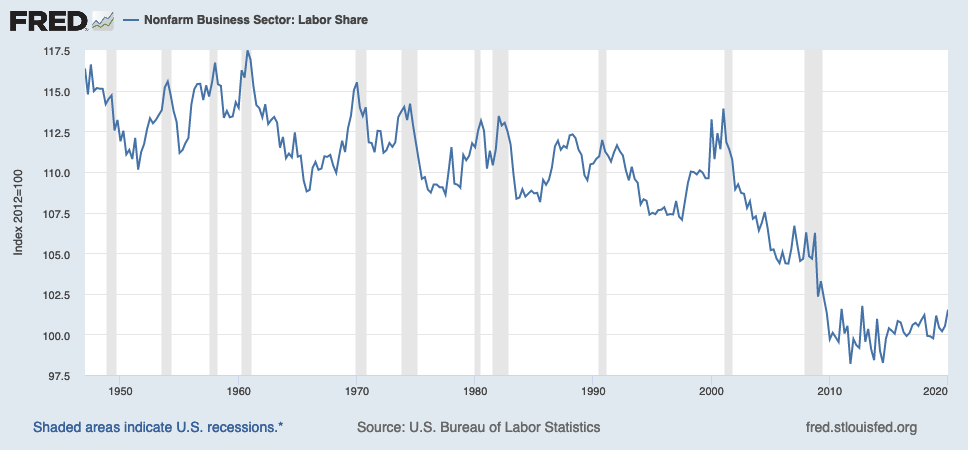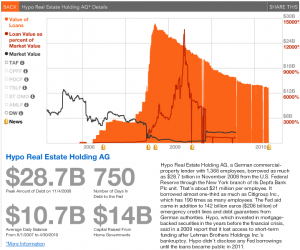The Wonkish Myth of Crowding Out
Posts in this series
The Deficit Myth By Stephanie Kelton: Introduction And Index
Debunking The Deficit Myth
MMT On Inflation
Reflections On The Deficit Myth
The National Debt Is Soooooo Big
Chapter 4 of Stephanie Kelton’s The Deficit Myth takes up the theory that federal government deficits increase the cost of borrowing by the private sector. Here’s Kelton’s typically incisive description:
In its most common form, the crowding-out myth says that fiscal deficits require government borrowing, which forces Uncle Sam into competition with other would-be borrowers. As everyone competes for a limited supply of available savings, borrowing costs move higher. With interest rates on the rise, certain borrowers — especially private businesses — won’t be able to secure funding for their projects. This causes private investment to fall, leading to a future where there are fewer factories, machines, and so on. With a smaller stock of capital goods, society ends up with a less productive workforce, slower wage growth, and a less prosperous economy. It does sound ominous! P. 101-102.
Given the amount of capital floating around in the world, much of it US dollars, it’s hard to see why this makes sense. The big problem is not the availability of capital for US businesses, but the insistence of the rich that they not be exposed to any risk of loss. What could be a better solution for that than Treasury securities? But the crowding-out theory requires a chain of reasoning, and so it appeals to the self-regard of our wonk class. [1]
Kelton first addresses the idea that there is a limited pool of savings. As she does throughout the book, Kelton uses this myth to discuss the overall picture of money as explained by mainstream economists. They claim that private savings are the ultimate source of the funds that are available to lend. [2] If the government borrows from that limited amount, there is less for others. As you can see, it’s a pinched view of government spending. It seems to mean that government spending is lost somehow, instead of going into businesses and our own pockets, in the US and elsewhere when the government buys from businesses in other countries.
Kelton asks us to consider the flow of dollars in our economy from an accounting perspective. She starts with a two-bucket system: the Federal Government is one bucket, and Everyone Else is the second. Any dollar that leaves the FG bucket goes to the EE bucket. There is no where elso for it to go. Taxes take money out of the EE bucket and put it into the FG bucket. That leads to our first equation:
FG balance + EE balance = 0
So, if there is a FG deficit then there is an EE surplus of like amount.
FG deficit = EE surplus
Deficit spending has a good side! That’s something that seems to elude the practitioners of deficit scare-mongering. On the other hand, if the government runs a surplus, we get
FG surplus = EE deficit.
That seems bad. It means we are losing some of our wealth. Where does that wealth go? Well, it’s cash. Remember that cash is a debt on the government’s books, so the cash it collects in taxes just offsets the debt, and disappears. That might be bad! That’s something else the deficit scare-mongers never mention.
Kelton emphasizes that it’s the net that counts. So, if the FG spends $100 and taxes $90, there is a surplus of $10 in the EE bucket. That’s money in our pockets, increased savings. The federal government can just issue Treasuries in that amount, converting the green dollars into yellow dollars in Kelton’s parlance. So contrary to the myth of crowding out, FG deficits don’t eat up our existing savings, they actually increase the amount of savings. It’s not an opinion, it’s just simple accounting.
At this point we might ask if there was ever any real danger of a shortage of loanable funds. The Fed publishes a weekly summary of the balance sheets of all commercial banks in the US. As of July 1, total loans were $10.6 T and total deposits were $15.6 T. [3]. The Treasury has issued trillions of dollars of securities to cover deficit spending to date and there are still $5 T in available bank credit, and with the multiplier effect [2], there’s much more. There’s plenty more where that came from. Money Market funds have a total of about $4.6 T, all of it short-term, and much of that is available for longer-term investment if there were reasonable returns for the perceived risk. But there aren’t any decent returns to cash right now. Why?
That’s Kelton’s second point. Step 2 in the reasoning chain for this myth is that competition to borrow money drives up interest rates. Not so, says Kelton. She explains that interest rates are a policy choice. The Fed has always been able to control interest rates, both short and long term. In the past, it has done so extensively. During WWII, the Fed kept interest rates at specific levels to help control the economy during the war. That continued until 1951. We have had other bouts of serious control, including immediately after the Great Crash, though that didn’t last long. The Fed is currently keeping interest rates low for both short-and long-term loans.
At other times, the Fed has controlled short-term rates and allowed the private market to affect longer-term rates. Kelton explains how the Fed controls both long- and short-term interest rates, which I’ll skip over. It’s enough to say that this puts the nail in the idea of crowding-out.
Deficits have their good side, but they can create problems, like inflation or politically-driven mis-allocation of resources. MMT doesn’t argue for deficits or surpluses. It argues that we should pay attention to the state of the economy and pick policies that maximize our political desires. I think the government should do more to take care of our citizens. I think everyone should have a job, good schools, decent transportation, clean water and clean air, a planet that isn’t catching fire, and a world not ravaged by Covid-19. MMT supports those goals. Others think we should buy more tanks and guns and do nothing else, just let the market fix things. There are MMT prescriptions for that too.
Finally, it’s worth noting something Kelton doesn’t discuss: keeping interest rates low hurts savers, whether they are saving for a rainy day, for college for the kids, for a down-payment on a home, or retirement. These are funds that people mostly don’t want to put at significant risk. But if interest rates are low, there is a real danger that inflation will slowly erode those savings. For example, health care costs are one reason people save for a rainy day. It’s likely that inflation in that sector is higher than the overall inflation rate. Low interest rates will hurt those savers. Similarly, college costs are rising faster than overall inflation, and in some cities, house prices and rents rise faster. In each case, the saver is a loser.
We should be thinking about that if we want to see progressive uses of MMT achieve their full potential.
=====
[Graphic via Grand Rapids Community Media Center under Creative Commons license-Attribution, No Derivatives]
[1] That’s my view, not Kelton’s. She says there is some evidence that crowding-out can be a problem for non-sovereign currencies, but not for sovereign currencies.
[2] This is accompanied by the idea that bank lending results in deposits, and those deposits fund another round of lending, etc. Each round of lending is smaller because banks are required to hold a percentage of all deposits in their reserves at the Fed. I was taught that this is the multiplier effect; it’s now called the money multiplier. We can ignore it for these purposes, because it leads to a larger number, but still one defendant on savings.
[3] Respectively, H.8, P. 2 Line 9 and H.8 P. 3, line 34.



